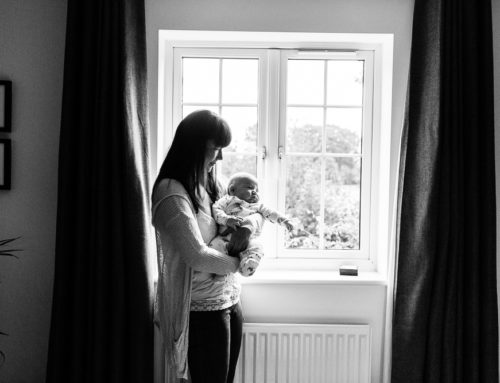The idea for this post came from you: it was a suggestion that was mentioned a few times when I asked what you would like to see from these medical posts, and at the risk of sounding a bit cringe-y, it made me realise what a conscientious lot you all are, and that I was pretty lucky as a doctor to get the opportunity to write for RMF.
Whilst I love my job, general practice can be a difficult place to work at times. It’s busy, high-pressured and stressful; most GPs I speak to feel like whatever changes are made to try and improve services, it’s a constant battle to keep up with demand, and I’ve worked in some places where I feel that morale has been consistently pretty low as a result. For me, the thing that makes the biggest difference in terms of job satisfaction is you: it’s easy to imagine that a patient who is grateful for something that I’ve done and thanks me can make my day; but equally if someone comes in with a smile, is thoughtful, and has prepared for their appointment, it leaves me feeling positive and re-affirmed about why I chose this career.
What do you want out of your GP appointment?
Communication and expectations
The best outcome from a GP appointment is one where you come out feeling that your expectations and needs have been met: if you feel satisfied that you got exactly what you came for, be it advice, a prescription, a referral or simply reassurance, then your GP’s feelings will mirror your own. For a doctor, this is the most rewarding kind of exchange, and what we all aim for.
When this fails, you, the patient, leave feeling frustrated and dissatisfied, as your expectations have not been met, and again, your doctor will feel exactly the same. The main reason for this to happen is that your doctor has not found out the exact reasons you made the appointment, and therefore could not address these. GP consultations are a two-way exchange, and your doctor has part of the responsibility for finding out why you have come, but you have the other part — and this is what you should do:
– Before you see your GP, and even before you make your appointment, think about what your expectations are, and consider jotting them down, even if they seem really obvious to you. For example, if your child is unwell, are you hoping for your GP to examine them in order to reassure you that their viral illness is just that and not something worse? Or are you sure that they need a prescription, because last time this happened they didn’t get better until they had a course of antibiotics? Or have nursery/school actually asked you to make the appointment, to make sure the illness isn’t infectious?
– Tell your GP these thoughts right at the very beginning of the appointment, so that they can start off on the right path to address what it is that you really want. Depending on which of the above examples apply to you, your doctor may deal with the consultation in a very different way; for example, you wouldn’t want your GP to give you a detailed explanation on why antibiotics aren’t needed for your child today if you weren’t thinking down that line anyway, and just wanted some advice and reassurance.
– You might think that your GP won’t like to be told “This is what I was hoping you would do”, or “This is the reason I really came”, but it’s really helpful – this is a patient who has come with an objective and has just saved the GP a bit of time, which can now be spent instead on addressing their specific needs.
– It’s OK if you are really not sure what you want from the GP appointment, for example if you’re coming with a symptom and genuinely have no idea why you’ve got it or what it means. Just say exactly that at the start – whilst it can sometimes be hard to be honest and open with your doctor, especially if it’s the first time you’ve met them, you’re being a huge help if you give as much information right at the beginning as you can, so that they aren’t left to guess what it is you came for.
– You might not get exactly what you hoped you would get, for example the antibiotics that you felt you needed, but by making it clear that it was what you had made the appointment for, it gives the GP the opportunity to discuss why you thought this and explain to you why they feel that they aren’t needed at that time.
GPs will often ask you questions to try and establish what you came for, if you haven’t expressed this in the first few minutes, for example: “what do you think is going on?” “were you worried that your headaches might be due to something serious? – what?” “what were you hoping I would do?” These questions might make you initially think, “I don’t know, you’re the doctor – why are you asking me?” Actually, knowing the answer to these questions is the key to really addressing your issues and therefore helping you in the best way possible – “Well, a friend of a friend had a brain tumour, and I was really worried it might be that.” With this knowledge, the GP can make sure that you don’t leave the room feeling like the thing you’ve been losing sleep over wasn’t properly addressed.
Practicalities
– Try to anticipate what examination the doctor might need to do, and dress accordingly: if you’ve come in with knee pain, skinny jeans are not the best choice of clothing for quick and easy access, and if you think it’s likely that your blood pressure might be checked, it’s really helpful wear a top with sleeves that can be rolled up. If you’re wearing lots of layers of clothing, removing your outer layers in the waiting room can save a little bit of precious time, as will replacing all those layers again back in the waiting room, and your GP will be grateful for it.
– If you’ve brought your baby or child in to see the doctor, the same advice applies, except of course depending on what is appropriate in the situation. If your baby is in an all-in-one snowsuit or multiple outer layers, it is hugely helpful to your doctor to save time by undressing/redressing outside the consultation room, and if your baby has been examined and needs a nappy change, consider doing this afterwards in the baby change area. Of course, this will depend on what facilities are available to you, how old your baby is and if they are unwell at the time, and your GP will be sympathetic to these variables.
– If your problem is related to your bladder/waterworks, bring a urine sample with you! A clean jar is fine if you haven’t had a chance to pick up a specimen pot from your surgery beforehand.
– Try and arrange for someone to look after your little ones when you have a GP appointment for yourself. I was reluctant to put this point in, because I am imagining that you’ll be thinking, “well of course, that’s obvious, but it’s really difficult/impossible to arrange childcare!” But I decided to include this as a reminder for you to consider if you think it will affect the care/treatment you get, and decide if it’s worth making special arrangements, as I have had many appointments where there are multiple littles running around the room, climbing on furniture and screaming. This isn’t only distracting for me, but for you as well, and often means that you’ve waited for an appointment in which you haven’t been able to really say how you feel, discussion with the GP has been fragmented and difficult, and you can’t remember what advice you were given as you were juggling a toddler at the time! If you do bring your child along, having a tablet with their favourite programme or game on, and some headphones, can work a treat at keeping them quiet!
– If your problem has got better in the time it has taken to wait for an appointment, please do cancel it! Even if you cancel an hour before, it usually means that someone else can be seen in your place. I see patients who tell me that in the time it took to get an appointment, their cough/sore throat/rash has gone – but surely this is a good thing!? Time is the best medicine!
Help your GP (and the practice) to help you
– If you’ve been asked to make an appointment with your GP, for example to discuss your blood test results, tell the doctor why you’re there in your opening sentence. Often it will have been a completely different GP who requested you make the appointment, and although there will be some information in the notes about this, it can help to quickly clarify your reason for being there if you tell them at the start, e.g. “I saw Dr X last week because I’ve been feeling tired, and she arranged some blood tests. I was called back to make an appointment to see you to discuss the results; I’ve been told I’ve got low iron levels.”
– If you’ve had a longstanding problem, for example recurrent headaches, tummy aches or problems with your periods, keep a rough diary to record the pattern of what’s been going on, and bring it with you to show your doctor. Try and be as specific as possible when describing a problem – if asked, “how long has it been going on for?” I frequently hear, “oh, a while”. It can be difficult to remember details, so make a few notes in advance of the appointment.
– Tell the receptionist your reason for booking your appointment. Many problems, such as contraception reviews, coughs and colds, and urinary tract infections can be dealt with by someone other than a GP, and that might mean you can get seen sooner. If your problem is to discuss a mental health problem, the receptionist may book you a double appointment with a doctor, as usually these issues simply don’t fit into a standard ten minute appointment, especially if it’s the first time you’ve come to talk about them.
– The ‘one problem per appointment’ rule (more of a guide) is one that most GPs have differing opinions on, when I’ve asked around. Some that I’ve asked have been hard-line on this, whereas others might not be over the moon when you come with five different problems, but will still deal with them all. Needless to say, if your own GP is in the latter camp, they will be more likely to run late! One of the biggest issues GPs have in not dealing with more than one problem per appointment is that for many practices, the waiting time is over two weeks — sometimes more.
– When you are booking your appointment, whether it’s for one problem or more, try to think, “do I think this can be dealt with in ten minutes?” Consider your doctor finding out about the problem, exploring areas that might be worrying you, examining you, making a diagnosis, ordering any tests that you might need, and making a management plan with you, including a prescription or a referral if necessary. If you think that it will take more than ten minutes to deal with a complicated problem, it probably will! Now consider, if you have two, unrelated issues, would you prefer your GP to rush over each problem, not really having the opportunity to listen to how you feel about them, therefore running the risk of missing the point, or even doing the wrong thing, or just deal with one issue thoroughly?
– If you have more than one problem that you need to discuss with your GP, do make a list – either on paper or in your head – and tell your doctor what the issues are at the start. This allows you and your GP to prioritise your problems together, and deal with them in the best order. Generally speaking, a ten minute appointment only allows time to properly deal with one complaint; you should bear this in mind, and anticipate that you may be asked to book another appointment if you have two or more unrelated problems, but sometimes issues are linked and can easily be dealt with together. A simple second request such as a repeat medication is fine, but don’t wait until the tenth minute to mention it!
– Please don’t think twice about bringing your children in to get checked out if you are at all worried. Even if you think they are fine, but are just not sure, or too sleep-deprived to make a rational judgment, we are always happy to check over poorly kids and offer reassurance. Little ones become unwell very quickly, and improve very quickly, and you are never wasting your GP’s time by bringing them in.
– On this note, don’t withhold paracetamol or ibuprofen before bringing your feverish child in, because you think it will ‘mask’ their symptoms – I hear this all the time from parents! It doesn’t mask symptoms, and if their temperature is very high when they are examined, your doctor may then give them a dose of paracetamol and ask you to sit in the waiting room for an hour, in order to check them over again once their temperature has come down.
Your GP is only human!
– If your GP is running late, it’s understandable that you will feel frustrated, especially if you’re juggling an impatient baby or late to be somewhere else. Please do try and remember that your doctor is just as frustrated at this, as it will mean that either they have seen a patient before you that came with several problems that could not wait, or a seriously unwell patient that perhaps required admission to hospital, which takes time. Often there will have been several patients in one clinic that required longer than their ten minute allowance, and sometimes one (or more) patients before you may have turned up late.
– Whatever the reasons for your GP running late, entering the room with a smile, some eye contact and understanding that it is likely to have happened despite their best efforts to run on time is always preferable to showing or expressing your annoyance – if you wish to do this, it is far more effective to calmly request to leave feedback or fill a complaint form after the consultation, by asking the receptionist.
– As an end note, if you’re happy with something, please do let your surgery or your GP know! Complaints are an inevitable part of being a doctor, and whilst they allow us to continue to improve, they can be very disheartening to receive, as GPs generally work extremely hard to do their best to help others. Receiving a card or letter of thanks can make a doctor’s day, and sometimes is a very welcome reminder of why they chose their career.
This is the last regular instalment of this medical post series for now, as I slow down in preparation for the arrival of our second baby, but I will definitely back with guest posts in the future! I wanted to thank you all sincerely for being so lovely, encouraging and positive in all of your comments; it really is a testament to the Rock My Family community that this has always been the case, even on the back of some potentially controversial topics! If you’d like to follow along with my pregnancy/new baby journey (and lots of other bits in between) I have a personal blog and Instagram account – I don’t post about anything medically-related, but if you are interested please do pop over and say hello!
Hannah x
PIN HANNAH’S TIPS
Photography by WE ARE // THE CLARKES














Thanks Hannah for a good, sensible article. I’ve never understood why, having suffered a delay, people get to the front of the queue and then start complaining about the wait! I always think, “how do you think that’s going to help them speed up?!”. I think the world needs more patience generally. Anyway, I have an extra tip, linked to telling the receptionist what it’s about. My practice has a list of all the GP’s specialisms/particular interests on its website. I’d definitely consider booking to see a specific GP if I had one of these concerns in future, as it may reduce the need for a second appointment or referral.
Best of luck with the baby 🙂
Hi Laura,
Thank you so much, I appreciate that. That is a brilliant tip! One reservation I had about writing this article was that I was pretty sure that the readers of RMF were just not the types to be difficult and complain about this kind of thing – I agree with you, we all need more patience on the whole! At the risk of sounding patronising (I really don’t want to be!), thank you for being so lovely and understanding.
I really thought paracetamol and ibuprofen masked symptoms so I haven’t given it to my feverish child or myself before consultations! Such a relief to know I can 🙂
Ah yes, it’s SUCH a common myth! I think some other parents can also worry that we won’t believe that a child has had a fever if they’ve had calpol, and but the time they are seen it’s normal. Kids often have an annoying way of seeming so much better once they’re in the doctor’s surgery but I’ll always listen to what the parents says they’ve been like at home.
This is great thanks. I’m lucky that my GP is brilliant – one of my children has a medical condition that can have some alarming symptoms, often they would distract when he was ill and if he saw another GP we would waste a good 5 minutes with me explaining a full medical history and why essentially symptoms of the condition should be ignored as they are a red herring. I spoke to my regular GP about this and she gave me a letter to present to any doctor with a concise explanation of the medical condition and it’s symptoms and it recently saved us precious time when we had to go to A&E with an unrelated illness.
A rambling way of saying it’s worth talking to your GP about how to make things easier if you have a child with a medical condition, I’m always wary of ‘making a fuss’ but my GP was very happy to help.
I’m not sure I can guess what this condition it from reading this – but it sounds complicated and what your GP did sounds very helpful. I find it’s always the people who are worried about ‘making a fuss’ that use their GP’s time most appropriately and are never there to waste time. Thank you for your comment!
As always, such a useful post, thanks Hannah! My GP is a marvel, he is so kind and considerate I don’t know how he manages to keep an even temperament, even on the 10th visit with just a virus inevitably despite the ridiculous temperatures and whatever else the little ones are going through!! He also has teletubbies or something on his second monitor when little ones come in, although to be honest my daughter is just fascinated by his beard so his attempts to distract her are often in vain 🙂 Good luck with the baby!
Annie, thanks so much again! Your GP sounds brilliant. The beard comment made me laugh! And the teletubbies – that’s a brilliant idea, I’ll think about that next time I have a restless child running around my consultation room!
I have recently had a number of appointments recently with an amazing GP in regards to suspected Chronic Fatigue Syndrome. I have suffered with it for four years and had lost my faith in GP’s and made to feel like a nuisance – one appointment comes to mind where the GP did not even look at me, just the computer screen. This lady has been so caring, supportive and thorough with a clear course of action for us to follow. I actually got really emotional coming out of my last appointment just because I finally felt cared for after what has felt like a long battle. I have sent her a thank you card!
Hi Claire, it’s wonderful to hear that you’ve eventually had such a positive experience and feel well cared after. That so lovely of you to send a thank you card – I bet you made her day!